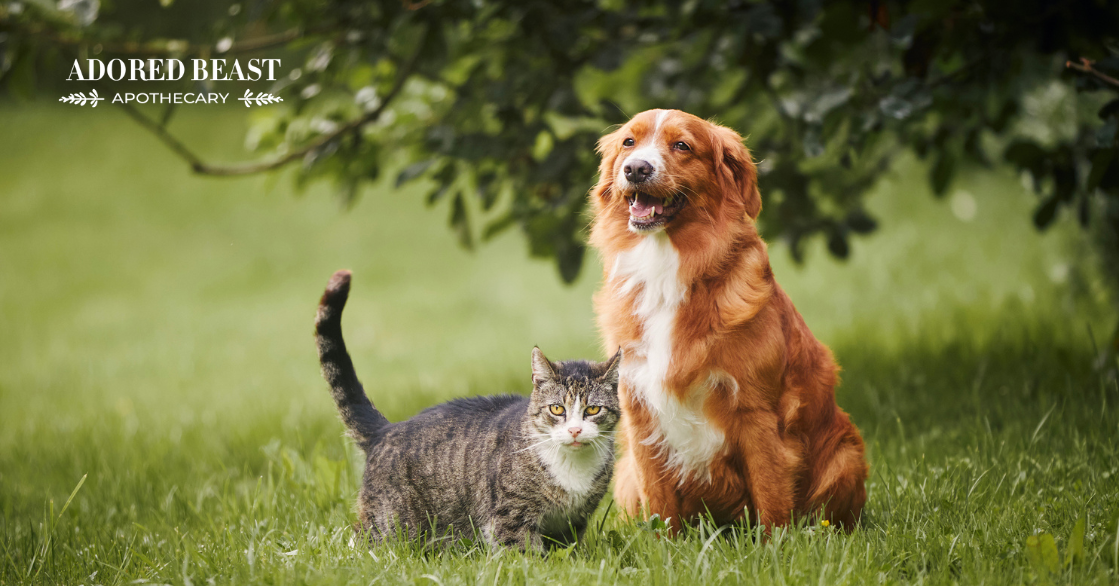Homeostasis is a crucial concept when it comes to understanding the overall health and well-being of our pets. In simple terms, homeostasis refers to the body’s ability to maintain a stable internal environment, despite changes in external conditions. This balance is essential for the normal functioning of all biological systems, and it plays a key role in keeping your dog or cat healthy.
What is Homeostasis?
Homeostasis is the process by which a living organism regulates its internal environment to maintain stability and balance, even in the face of external changes. In dogs and cats, this involves a complex interplay of various physiological systems, including the nervous, endocrine, respiratory, digestive, and immune systems.
The body knows to recognize when things are too high, too low, too fast, too slow, etc., & to defend & regulate the systems of the body to maintain balance when threats arise.
For example, when your pet’s body temperature rises due to external heat, homeostasis kicks in to help cool them down through mechanisms like panting in dogs or seeking a cooler spot in cats. Similarly, if their blood sugar levels drop, the body works to restore balance by releasing stored glucose or triggering hunger signals.
Why is Homeostasis Important?
Homeostasis is vital because it ensures that all the systems in your pet’s body work together harmoniously. When the body is in balance, organs and tissues function optimally, which promotes good health and longevity. Homeostasis regulates critical functions such as:
- Immune Response: Balances the immune system to protect against infections without causing excessive inflammation.
- Body Temperature: Keeps your pet’s body temperature within a safe range, preventing overheating or hypothermia.
- pH Levels: Maintains the proper acid-base balance in the body, which is essential for cellular function and metabolic processes.
- Fluid Balance: Regulates hydration and electrolyte levels, ensuring that cells have enough water and minerals to function properly.
- Blood Sugar Levels: Keeps glucose levels stable, providing a consistent energy source for the body’s cells.
When homeostasis is maintained, your pet remains healthy, energetic, and resilient. However, if this balance is disrupted, it can lead to a variety of health issues.
What Happens When the Body is Out of Balance?
When the body is unable to maintain homeostasis, it can result in a range of health problems, some of which can be serious or even life-threatening. For example:
- Immune System Disorders: An imbalanced immune system can result in autoimmune diseases, allergies, or increased susceptibility to infections.
- Dehydration or Overhydration: Imbalances in fluid levels can cause dehydration, which affects organ function, or overhydration, which can lead to dangerous electrolyte imbalances.
- Diabetes: When the body cannot regulate blood sugar levels effectively, it can result in diabetes, a condition that requires careful management.
- Metabolic Acidosis or Alkalosis: Disruptions in pH balance can lead to metabolic acidosis (too much acid in the body) or alkalosis (too much base), both of which can impair organ function and cause serious health issues.
[RELATED] Think of homeostasis as the perfect balance. This can help maintain that perfect balance…
Causes of Homeostatic Disruption
Homeostasis is easily threatened by things in our environment and by damage in the body. When these things overwhelm the body’s ability to maintain balance, it becomes vulnerable, and the disease process begins. These include:
- Poor Diet
- A diet lacking in essential nutrients can lead to imbalances in energy levels, hydration, and organ function. Overfeeding or underfeeding can also disrupt the body’s ability to regulate weight and metabolism.
- Lack of Exercise
- Inactivity can affect muscle tone, cardiovascular health, and metabolic processes, leading to obesity, diabetes, and other health problems.
- Stress
- Chronic stress can trigger hormonal imbalances, weaken the immune system, and affect digestion, leading to issues like anxiety, gastrointestinal problems, and skin conditions.
- Environmental Factors
- Extreme temperatures, pollutants, and allergens can disrupt homeostasis by affecting the respiratory system, skin, and overall immune response.
- Illness and Disease
- Health conditions such as infections, cancer, and hormonal imbalances (e.g., thyroid problems) can interfere with the body’s ability to maintain balance.
- Aging
- As pets age, their bodies may struggle to maintain homeostasis as effectively as they once did. This can lead to age-related conditions such as arthritis, kidney disease, and cognitive decline.
How to Maintain Homeostasis in Dogs and Cats
Maintaining homeostasis in your pets involves creating an environment and lifestyle that supports their overall health and well-being. Here are some key strategies:
- Balanced Diet
- Feed your pet a balanced diet that provides all the essential nutrients they need to support bodily functions. Ensure they receive the right amount of calories, proteins, fats, vitamins, and minerals.
- Regular Exercise
- Provide your pet with regular physical activity that matches their age, breed, and health status. Exercise helps maintain a healthy weight, supports cardiovascular health, and reduces stress.
- Adequate Hydration
- Ensure your pet has access to fresh, clean water at all times. Monitor their hydration, especially in hot weather or after exercise.
- Stress Management
- Reduce stress by providing a stable environment, regular routines, and plenty of mental and physical stimulation. Consider calming aids or techniques for pets that are prone to anxiety.
- Environmental Control
- Keep your pet’s environment comfortable and safe. Protect them from extreme temperatures, reduce exposure to pollutants, and minimize contact with allergens.
- Supplements
- There are several different supplements that help keep the body healthy, including things like pre & probiotics (to help support the friendly bacteria in the gut), antioxidants (to fight free radicals), and immunoglobulins (to defend against harmful pathogens and antigens).
- Monitor Changes
- You know your pet best! Pay attention to any changes in your pet’s behaviour, appetite, energy levels, or physical condition. Early detection of imbalances can help prevent more serious health issues.
Homeostasis is a fundamental aspect of your dog or cat’s health, ensuring that their body functions smoothly and efficiently. By understanding the importance of maintaining balance within their internal environment, you can take proactive steps to support your pet’s well-being. From providing a balanced diet to managing stress, there are many ways to help your pet maintain homeostasis and enjoy a long, healthy life.












